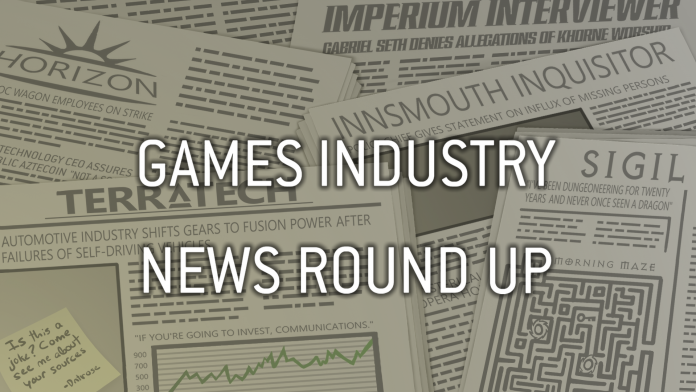Here at Goonhammer, we know that it’s hard to keep track of all the news happening all the time in the games industry. So much is always going on with games of all sorts, and their related media, it can be a real blink-and-you’ll miss it situation.
That’s why every week, we round up five of the biggest stories in the gaming sphere from the past week in the Games Industry News Roundup. Our trusty news boy, Dan “Swiftblade” Richardson, is here with the scoop
Embracer Group Announces Plans to Split off Asmodee, Saddling It with Huge Debt
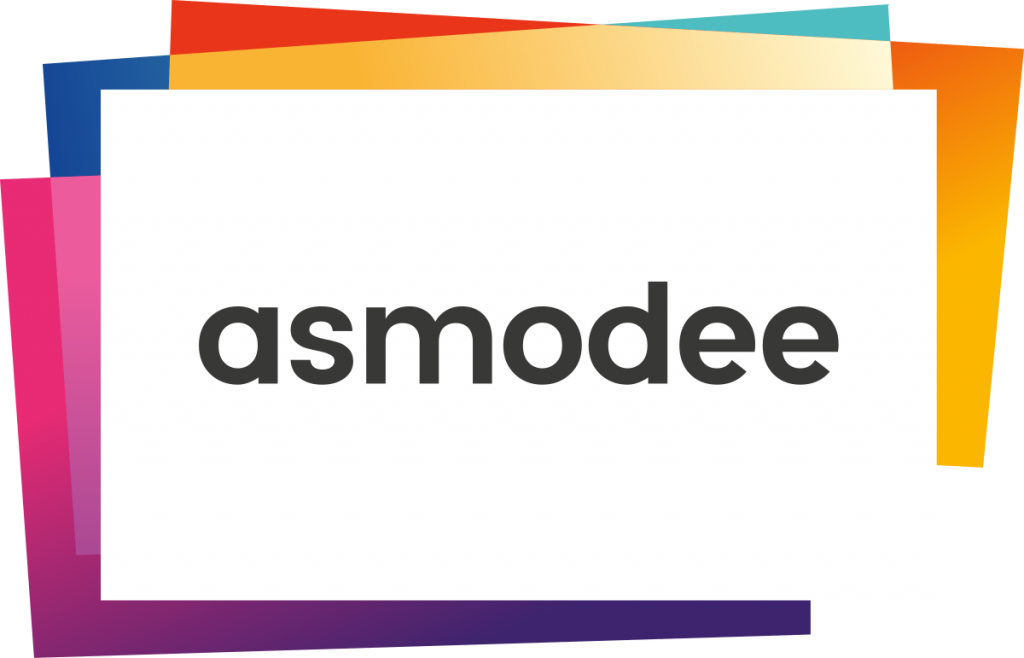
On Monday, Embracer Group announced that the controversial conglomerate as we know it will be no more.
Rather than continuing on as a singular entity, Embracer will be working through the process of splitting into three separate companies over the next calendar year, with the intention to become publicly listed entities at NASDAQ Stockholm by 2025. According to Kicki Wallje-Lund, Chair of the Board of Embracer Group, this is being done as “an important step in unlocking shareholder value.”
Two of these entities are new companies entirely, focused on Video Game development. These new companies are Coffee Stain & Friends, who will be focused on A/AA game development and mobile games, and Middle-Earth & Friends, who will be focused on larger AAA development and hold IP rights to the Middle Earth and Tomb Raider franchise. Board game giant Asmodee is being split off as its own entity with this restructuring change, independent again after being bought by Embracer in 2021 for $3 billion.
As part of this transformation, Asmodee will be putting current CEO Stéphane Carville and COO Marc Nunes on its board of directors, keeping the company headquarters in France, and, oh, taking on over $1 billion in Embracer’s current debt. Just a little thing, really.
This debt, taken against Asmodees current assets, is the remaining debt from Embracer Group’s financing deals with various international banking organizations. While Asmodee’s steady success with its established board game IPs and breakout hit in Star Wars: Unlimited TCG probably means being straddled with this debt won’t be an immediate deathblow, it is a huge setback for the company as they now have to deal with a $1 billion sword of Damocles hanging over their head.
Marchettus: A counterpoint to doom and gloom about Asmodee — on the surface I’ve seen a lot of people worried about Asmodee taking on the bulk of the debt as part of the debt refinancing of Embracer Group. Levering the Adjusted EBITDA (see below for glossary) to 3.9x while the rest of the company has 0.6x net debt might seem scary. Moving to a €900 facility that matures in 18 months to your beloved or hated board game giant might seem like they’re being given a burden they can’t handle. Given the smaller capital expenditures into the board game division more of the EBITDA they earn can be applied to distributions and the timely payment of principal and interest. This allows Asmodee to have a higher fixed charge coverage and debt service rating allowing them to refinance this debt another time without the noise that comes from the video game (specifically AAA) game division.
However, I’d submit that the split (described elsewhere) is going to be good for the board game owners. Asmodee has a very predictable and diverse stream of revenue from selling lots and lots of little board games at Target, on Amazon, at FLGs, and elsewhere. Compared to the video game development side this is a stable business with a business model that is well established. Video games are having yet another shift as subscription services continue to be more popular and AAA development costs increase. Similar to movies, more and more money is put into fewer and fewer games that must do better and better or risk putting a company into financial hardship. Good games are not guaranteed to succeed in the market and Embracer Group was likely having trouble explaining to capitalists why these businesses deserved more money. Without this split Asmodee was likely on the hook for all of the capex funding required to produce AAA titles.

Asmodee is the most distinct of the three businesses being split off and the only one with a name. It likely has, or can get, back people to run the internal systems much easier then a group of studios that relied on “corporate” for HR, legal, accounting, and other services. I predict that once Asmodee is its own public company they will work to get longer term financing through a combination of longer term bank debt and a public markets bond offering. The loan they’ve taken on is likely structured as a bridge loan with low required debt payments that encourages them to seek take-out financing. As you can see below, board game side has extremely low investment needs compared to the game companies.

BPhillipYork: Big picture, I think they grew too much and too fast and now they’re struggling with cash flows to pay down debt. The currently expected interest rate on the group’s total debt, based on a floating rate, is around 6.15%. The amendment agreements include scheduled quarterly minimum prepayments, that amount to SEK 2.6 billion on an accumulated basis up until January 2025, starting in Q1 FY 24/25. So, I think, big picture, this makes sense, business wise, but it’s also being done to make the “equity story” clearer to investors in a hope to probably issue more shares to pay down debt, because I think they took on too much debt over the last 3 years, didn’t grow enough, then tried to work out a merger or sale of some sort, and the other party walked away after a handshake deal. I don’t think any of the groups will go bankrupt or anything like that; it’s possible they are putting toxic assets into one group and are then going to burn it down, but that’s pretty cynical. I do think this is about debt though.
Wizards of the Coast President Resigns
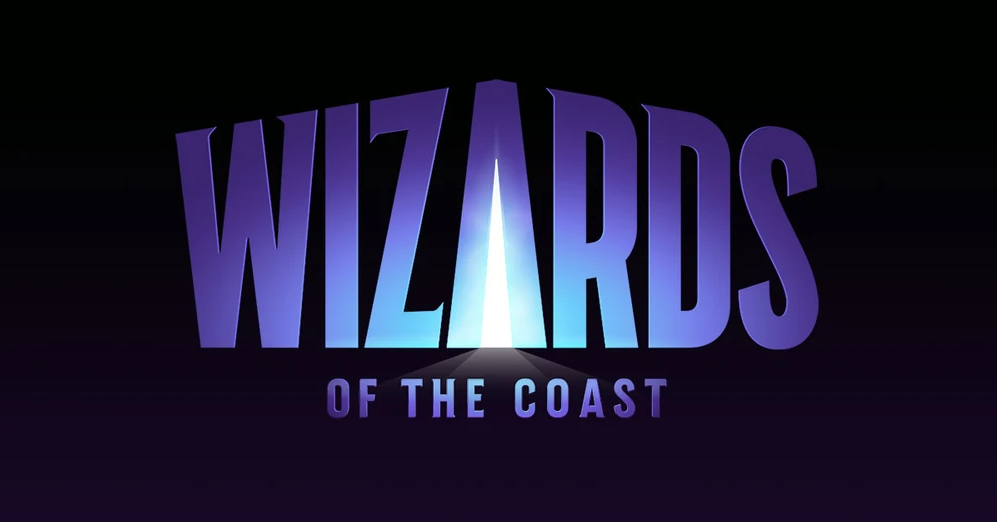
After just two years at Wizards of the Coast and Hasbro Gaming, the current President, Cynthia Williams, is stepping down from the position.
According to a filing with the SEC, “On April 15, 2024, Cynthia Williams, President of Wizards of the Coast and Hasbro Gaming, informed the Company of her resignation from the Company effective April 26, 2024. The Company is conducting a process to identify her successor, looking at both internal and external candidates.”
Williams previously was an executive at Microsoft before replacing Chris Cocks, who became the CEO of Hasbro in 2022.
Williams saw Wizards through a very profitable time in the companies history during her brief tenure, with products like Baldur’s Gate 3 and a Lord of the Rings crossover with Magic: the Gathering being huge money makers for the company. But much of her tenure has been marked by frustration and controversy, such as the proposed OGL changes for D&D and famously sending the Pinkertons after someone who mistakenly received a card for an upcoming set.
An interim President will likely be announced before William’s last day on April 26th.
Larian Announces Two New IPs in the Works After Baldur’s Gate 3’s Success
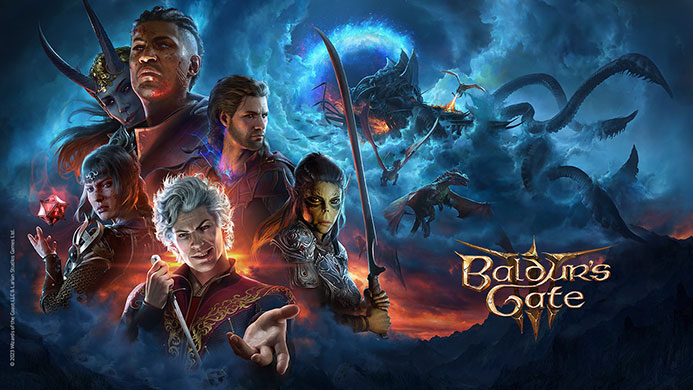
Speaking of Baldur’s Gate, Larian Studios has given us a brief glimpse into what the future holds for the company.
In a blog post detailing the next major patch for BG3, Larian took some time to allude to what the company will be working on next: “As an independent studio since 1996, we value the freedom to follow our creativity wherever it leads. In this case, after six years in the Forgotten Realms and much discussion and rumination, we’ve decided to seize this opportunity to develop our own IPs. We’re currently working on two new projects and we couldn’t be more excited about what the future has in store.”
Swen Vincke, CEO of Larian, is barely able to contain his excitement over these in-development titles: “I don’t know if we’re going to pull it off, but looking at our narrative, visual and gameplay plans, I think what we’re working on now will be our best work ever. I get excited like a kid watching the key imagery, want to show it to everyone now and grumble in frustration at having to wait until it’s actually all working. Yes, it’s hype but it’s hype because it really looks and feels good.”
Despite being the first game to win Game of the Year at every major awards show, Larian clearly does not want to become the Baldur’s Gate 3 company. It’s a very bold move for the developer, but given the success of Baldur’s Gate 3, it’s hard to imagine a world where these next games won’t be massive hits.
Take Two Interactive’s Newest Cost Cutting Plan Includes Big Layoffs and Canceled Projects
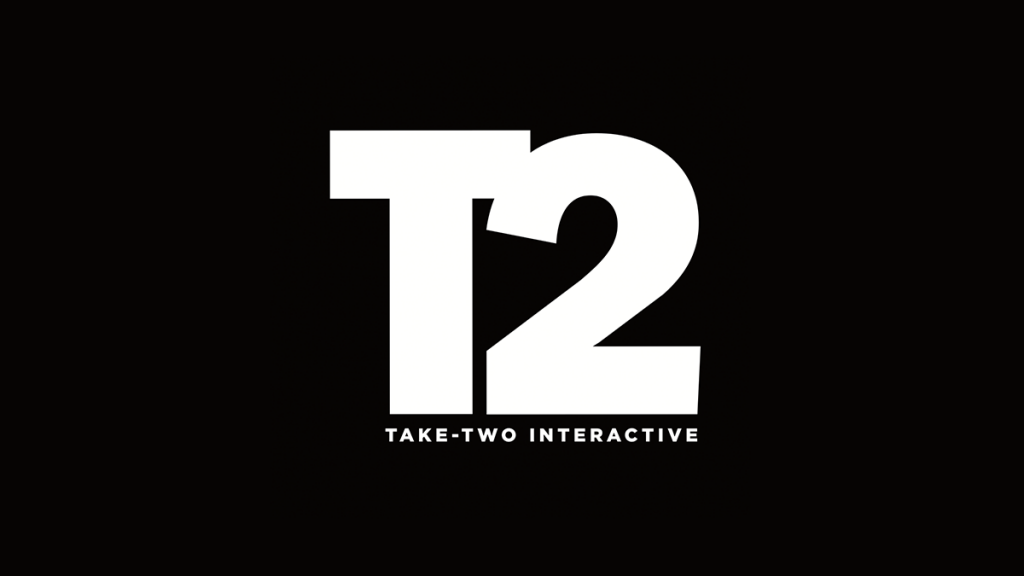
Take Two Interactive is once again in the news after acquiring Gearbox from Embracer group earlier this year for $460 million. Reset the clock, friends, it’s time for another industry layoff.
Take Two announced last week in an SEC filing that as a part of a plan to reduce company costs, it has canceled several in-development projects and will be laying off about 5% of its current staff, which amounts to roughly 600 people at the company. This is the third cost cutting plan the company has enacted since February of last year, with the first saving the company around $50 million followed by a second “more robust” plan announced earlier this year.
The current cost cutting plan comes with a hefty price tag before any potential savings occur, according to the SEC filing. “The Company estimates that it will incur approximately $160 million to $200 million in total charges in connection with the Plan. The Company expects $40 million to $60 million of the total charges to result in future cash expenditures. The total charge consists of approximately $120 million to $140 million related to title cancellations, approximately $25 million to $35 million associated with employee severance and employee-related costs, and approximately $15 million to $25 million related to office space reductions.”
Whether these layoffs are to account for the new employees Take Two gained by acquiring Gearbox, or another attempt to get the company back in the black after reporting a loss for eight quarters is unclear. The only clear takeaway from this news is that more industry layoffs sucks.
New Edition of Bolt Action Coming this September

Warlord Games announced last week that it will be launching a new edition for its popular World War 2 historical wargame, Bolt Action.
The new edition will be released in September of this year, and the new edition will streamline many of the current rules for the game while maintaining the core of Bolt Action fans are currently familiar with. The current “Armies off…” books will be replaced by placeholder rules PDFS when the edition launches, and new bespoke “Armies of…” books for the third edition will be released as time goes on. More news about new models or specifics regarding the new edition won’t be unveiled until around July, according to the announcement post.
Alessio Cavatore, the designer for Bolt Action Third Edition, shared his excitement for the update in the announcement post, writing, “Working on this new edition of Bolt Action has been a treat, but also a challenge. I saw my mission as trying to make my favourite game an even better experience for the players. For me, there’s always one goal in mind – continuing my quest for a truly ‘seamless’ set of wargame rules – in other words, the Holy Grail of a rules system where the players are always thinking about their next moves on the table, and not about the rules of the game! I think Bolt Action: Third Edition is definitely a big step in that direction, and I’m sure you’ll agree with me!”
If you’re excited about the new edition of Bolt Action, our historicals team here at Goonhammer has put together a wishlist for what they would love to see in the new edition.
—
Glossary of Finance Terms:
- EBITDA: Earnings Before Interest Taxes Depreciation and Amortization. Unlike terms like Net Income or Revenue this is not defined by Generally Accepted Accounting Principals. In many ways this is the true “cash” that is able to be distributed to debtholders and owners of the company.
- Fixed Charge Coverage Ratio: Generally this is your EBITDA less capital expenditures, distributions to owners, and required debt payments divided by your interest, required debt payments, taxes, and distribution. You want this to be above 1:1 if you have lent somebody money.
- Adjusted EBITDA: You can say whatever you want on this part, there are literally no rules.
- Net Debt: Debt after accounting for cash on the balance sheet.
And that wraps it up for our Games Industry News Roundup this week! Join us again next week for more news about the tabletop games industry and related media.
Have any questions or feedback? Have an interesting tabletop news story we should be including in our round-up? Drop us a note in the comments below or email us at contact@goonhammer.com. And if you want regular updates in your inbox, subscribe to our newsletter.
